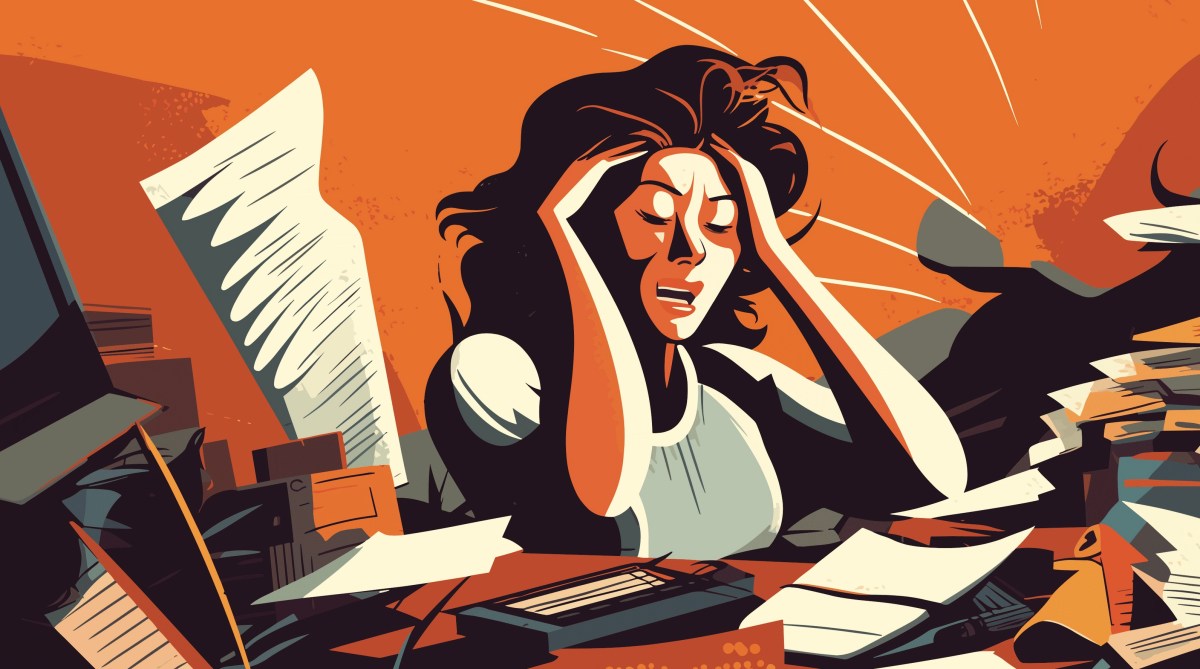There are a few phrases in life that always make you adopt a mental brace position. Like if someone ever starts with, ‘Let me give you some feedback…’ then you’ll instinctively feel your buttocks clench and your lower back lean forward against the mental seat in front.
But I think the scariest phrase will always be: ‘You’re not living up to your potential…’ That’s the one that instantly makes you feel like your flight is trying to land in Wellington, on a particularly stormy day, just after you’ve necked a litre bottle of Fanta.
For as long as I can remember, not living up to my creative potential has been my biggest fear.
If you’re reading this, you’re probably the same. After all, it’s always been the Type A personality’s bogeyman. But this fear has spread in recent decades, with the rise of a productivity-obsessed society. Now, ‘sub-optimising’ in life is every Millennial’s worst nightmare – as if our lives were merely new product lines at constant risk of underperforming in their export markets.
And – despite the corporate babble – the creative industries very much feel the pinch of this.
First, there’s the age-old creative worry – ‘I have something important to say! But I don’t know which back cupboard of my soul it’s hidden in! And I’m worried I will never find it!’
It must also be noted, gone are the days when living up to it meant making great art. Now you have to make it, market it and move into brand-adjacent projects that support it. Not to mention the fact that people will always be reminding you how you’re not doing this. (Have I told you today that you should start a podcast?)
And at this point, you’re probably so overwhelmed by what you could be doing that you want to roll up like an abandoned sock in the spin dryer and never think about it again. That’s the thing, isn’t it? Your potential is supposed to be this amazing, glorious, inspirational and motivational force.
But every time we seem to think about it, it scares us. And what’s more, it’s very easy to let this terror grow into an all-encompassing fear. So much so that being obsessed with living up to it (and worrying that you’re wasting it) grows into a self-fulfilling prophecy that’s super harmful to both you and your creativity.
Take my potential.

Mine talks to me like she’s an acidic middle manager in a severe black suit and an even more severe glass corner office. She’s always sighing pointedly and saying, ‘So where is your show, your live panel appearances, your book and your Substack? You know, if you just worked harder you could…’
This went on for years. She’d list out all the things I could be doing – and, in response, I’d be overwhelmed, I’d panic, I’d seize up and I’d do absolutely nothing.
Instead of inspiring me into action, my potential terrorised me into inactivity.
So, basically, I’d end up doing the one thing I was most scared of doing. Nothing.
Read: How to conquer impostor syndrome
Don’t be intimidated
It felt as if I was holding myself hostage by my own potential, and I needed a way to break the deadlock. So I read Julia Cameron’s bestselling books, The Artist’s Way and Write For Life. (She’s known for un-bunging an artist’s creativity, like a particularly articulate sink plunger.) Cameron suggests that, while our creativity is enormous, we can actually intimidate ourselves with it.
She argues that if, say, we try to write a whole book, we will scare ourselves. We panic and procrastinate because it seems too big. Hence why she advocates for taking it slowly. Don’t try to write a book – just try to write a couple of pages. By not focusing on the big goal, you actually end up getting there through a series of small increments.
Since reading her works, it has struck me that the same principle applies to our potential. When we think extensively about what we could do, we’re scaring ourselves with the sheer scale of it all. Inevitably, accomplishing all those goals feels impossible. So we don’t try.
But perhaps we’re looking at this the wrong way. Maybe if you want to get a healthier relationship with your potential, then don’t spend time worrying about it.
Focus on having fun
Do the small stuff, the fun ideas that burst in your mouth like sherbet fountains. The ideas that are hiding under your mental couch, just waiting for a string to be dangled in front of them so they can come out and play cat-versus-iPhone charger with you.
And instead of scaring ourselves, we relax. We follow the cool little ideas, the small stuff that we actually want to create. We don’t do it to hit our monthly KPIs – we do it because it’s cool. That was the whole reason we started making art in the first place. What would happen then?
Well, I have a feeling we may turn around in a few years’ time and realise what epic work we’ve made. Suddenly we are living up to our potential. But we won’t get there by worrying about it, we’ll get there by ignoring it.
So forget living up to your potential, you’re just creating your own internal headf**k. Just focus on having fun again, not threatening yourself into action like a vengeful high school gym teacher.
This story by Verity Johnson was first published by The Big Idea (NZ). It has been slightly amended for ArtsHub house style.





